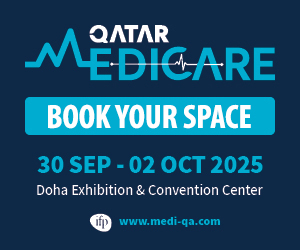Dr. Javaid Sheikh, Dean of Weill Cornell Medicine – Qatar (WCM-Q), a partner university of Qatar Foundation, announced that 45 new doctors will graduate this year, bringing the total number of WCM-Q alumni to 641. He highlighted that this steady growth demonstrates the university’s ongoing contribution to Qatar’s healthcare sector through the training of highly skilled professionals.
Speaking to Qatar News Agency (QNA), Dr. Sheikh noted that WCM-Q welcomed its first class in 2002 and celebrated its initial graduating cohort of 15 doctors in 2008. Since then, the number of graduates has grown significantly, culminating in the Class of 2024—the largest to date—with 50 graduates representing 13 nationalities, including 18 Qataris.
This rise, he said, reflects growing confidence in WCM-Q’s academic rigor and its ability to prepare doctors who are both clinically competent and ready to address Qatar’s evolving healthcare needs.
Dr. Sheikh emphasized that WCM-Q graduates play a critical role in the local healthcare landscape and that the university’s Alumni Affairs Office actively supports them through career guidance, professional development, research and teaching opportunities, and community engagement. Many graduates have returned to Qatar after completing residencies in the U.S. and now serve at leading institutions such as Hamad Medical Corporation, Sidra Medicine, and Aspetar—strengthening the country’s healthcare talent pipeline.
He praised WCM-Q’s collaboration with national stakeholders including the Ministry of Public Health, Hamad Medical Corporation, Primary Health Care Corporation, and private hospitals, which collectively provide promising career paths for graduates and foster their growth within Qatar’s medical ecosystem.
To the new graduates, Dr. Sheikh offered words of encouragement, urging them to remain resilient, uphold ethical medical practices, and prioritize both patient care and their own well-being. He encouraged them to stay connected with the college and benefit from the strong alumni support network.
In terms of specialties, Dr. Sheikh said that while many graduates pursue clinical careers, a growing number are combining them with research, education, and health leadership. Popular fields include internal medicine, pediatrics, psychiatry, emergency medicine, cardiology, ophthalmology, neurology, and orthopedic surgery.
He also emphasized the importance of research at WCM-Q, particularly through its Biomedical Research Program established in 2009. The college now operates 22 active laboratories with 135 researchers, conducting advanced work in genomics, proteomics, bioinformatics, medical imaging, and biostatistics. These efforts are closely aligned with other Qatar Foundation initiatives, promoting interdisciplinary collaboration.
While WCM-Q does not offer traditional postgraduate degrees, it runs a six-year integrated medical program and a foundation program, both of which attract top-tier students from Qatar and abroad. The college receives more than 1,000 applications annually and admits around 40–50 students into its integrated program, in addition to a few candidates for its four-year track for those with prior pre-medical education.
Looking to the future, Dr. Sheikh underscored the college’s commitment to modernizing its curriculum in line with advancements in technology, artificial intelligence, and precision medicine. He cited the recent launch of the “Innovation and Education in Precision Health” platform, which aims to integrate these tools into medical training while upholding foundational medical ethics.
He concluded by affirming Qatar’s role as a regional and global center for higher education and reiterated WCM-Q’s mission to cultivate the next generation of healthcare leaders—individuals equipped with scientific excellence and human compassion.
Source: QNA










































































